
In response to a disagreement between Pennsylvania and Virginia over the extradition of a fugitive slave named John Davis, George Washington signed into law the Fugitive Slave Act 1793. Charging the individual states with the responsibility of returning fugitive slaves, this law proved ineffective because it failed to address the fundamental interstate nature of this issue.
After decades of state-to-state conflicts, the federal government issued a more stringent fugitive slave law as part of the larger Compromise of 1850. This new law made the federal government - not the individual states - responsible for apprehending fugitive slaves.
Lewis Hayden was a clothes dealer who helped a former slave, Frederick Minkins (Shadrack Minkins), escape from Virginia in 1851. The U.S. eventually took him to court under the Fugitive Slave Law of 1850 for assisting a runaway slave. Examine the indictment to find out about this case.

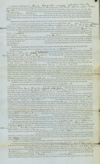
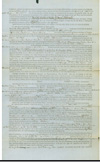
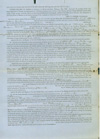

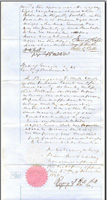
New York was a destination for fugitive slaves escaping to the North in the years before the Civil War. One such fugitive, Edmund Dye, came from as far as Georgia before he was captured. Read about him in the affidavit of James Hope, George M. Newton, and John D. Butt, 1858.
Read about the Christiana Riot, a clash over fugitive slaves harbored along the Maryland-Pennsylvania border in 1851:
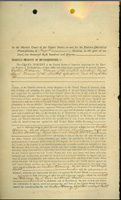
Indictment of Castner Hanaway, et al:
Christiana residents were indicted for treason for violating the provisions of the Fugitive Slave Act of 1850 that made it illegal to harbor fugitive slaves and mandated that the federal courts assist slaveholders in apprehending runaways. An indictment is a formal charge brought by the government against the accused individual(s).
Petition of Edward Gorsuch:
In this document, Edward Gorsuch called upon the District Court of Maryland to arrest slaves who fled from his Baltimore County plantation. A petition is a formal application for the court to take action.
Will of John Gorsuch:
This will explains the terms of service and manumission of the slaves bequeathed to John Gorsuch's nephew Edward Gorsuch. A will is a legal declaration of how a person wants their property cared for and/or distributed after they die.
This page was last reviewed on March 4, 2020.
Contact us with questions or comments.